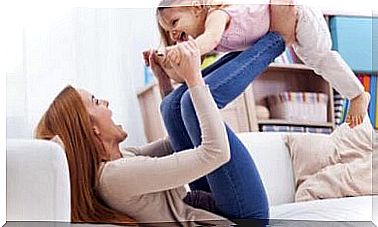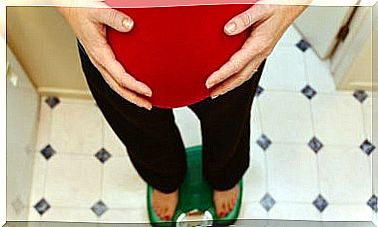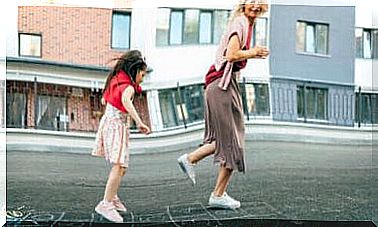Your Child’s First Fever
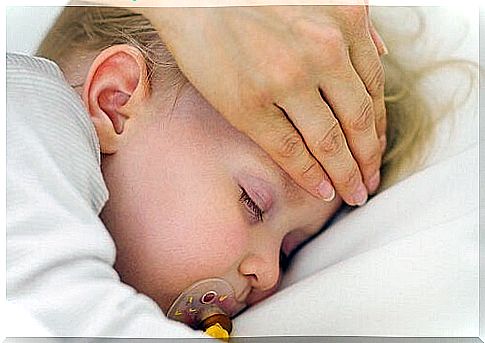
There is nothing more disturbing than when your child gets his first fever. Above 41 degrees, the fever can be difficult to bring down, and it ends up not thinking about anything else.
When this happens, it is important to seek medical attention. It is also important to get emotional support to be able to respond effectively to the situation and prevent catastrophic results.
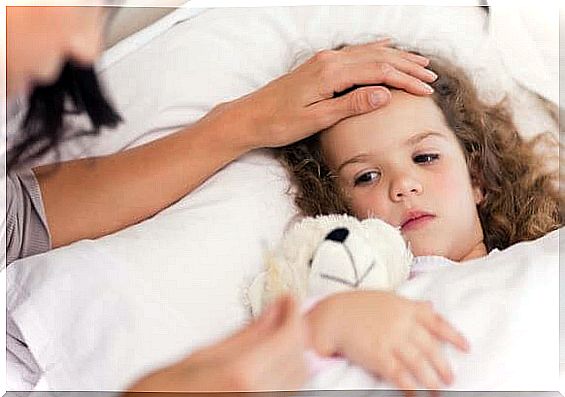
The anxiety you feel at a child’s first fever is inevitable
It is natural and completely understandable that a parent becomes emotionally and physically tense in stressful situations. Without knowing why and how, we seek help from medical explanations to lower the little one’s fever.
Both older children and babies often begin to show symptoms of fever through strange behaviors. Their small eyes may begin to redden and look exhausted, and this may help us to suspect that something is wrong.
It is important to be aware of the symptoms because a baby cannot talk or say how it feels. Even a sick child who is a little older and has a fever may not be able to say much more than that he is not feeling well.
It is therefore very important that you pay attention to the signs of fever. Below are some guidelines for how to deal with your child’s fever.
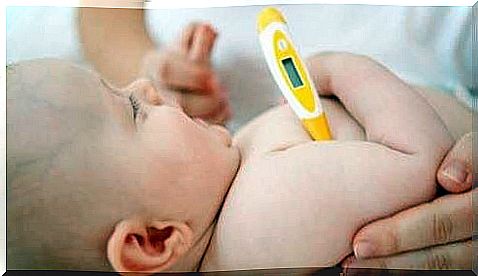
What to do about your child’s first fever
First of all, keep in mind that something is not right in their small bodies when they have a high fever or a slightly higher temperature than usual.
Do not think too much about whether the fever is high or low, because there are infections such as bronchiolitis that occur at lower temperatures, while sore throat occurs at higher temperatures.
Moms have a sixth sense that helps them see that something is wrong. You know best if the child is angry or more exhausted or apathetic than usual. It is also important that you measure the baby’s temperature with a working thermometer.
How do you know if a child has a fever based on temperature? Pediatricians have established some general guidelines for classifying fever based on the temperature of the armpit:
- Up to 37.5 C is a low-grade fever. In principle, it is not a problem if the baby is over three months old.
- Between 38 C to 39 C is classified as moderate fever. Consult a pediatrician to find the cause of the fever and treat it.
- Higher than 39 C is mostly known as high fever and requires immediate medical attention.
If you decide to take the baby’s temperature orally or rectally, keep in mind that the temperature there is higher than in the armpit.
If you use an IR (infrared thermometer) thermometer, you must follow the manufacturer’s instructions carefully. If you use traditional thermometers, the temperature conversion according to the range will be as follows:
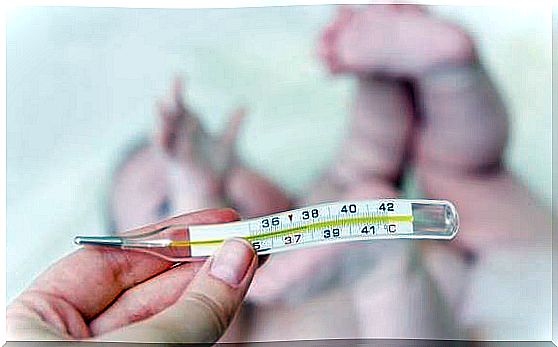
Fever in babies under 3 months
For newborns and babies under 3 months, the fever must be treated differently.
You need to think about the baby’s clothes, vaccinations and if it has been in someone’s arms. This is because babies at that age still do not regulate their own temperature properly.
If the baby’s temperature does not drop below 37.5 C degrees after you have normalized the situation, see a doctor. They will find out the cause of the fever and treat if necessary.
After the age of three months, children begin to develop their own immune system and they can therefore be evaluated in accordance with the margins we discussed above.
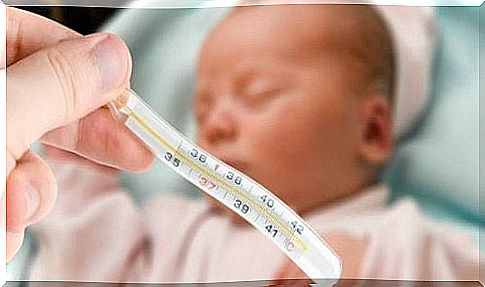
What can be done to lower the fever?
If the temperature is not so bad (37.5 C), you can start by taking off some clothes. You can also give the baby water and offer it food.
Do not hug it and do not wear it so much right then. It helps the child to regulate his own body temperature.
If the fever is 38 C, you can give it a bath with warm water that is two degrees lower than body temperature. If this is not possible, just soak the baby’s neck, breasts and squirt with a sponge of warm water.
You can also give the child an antipyretic that pediatricians recommend for fever. When giving medicine, you must always respect the advice of your pediatrician.
If your child’s first fever persists despite these measures, consult your doctor immediately.





